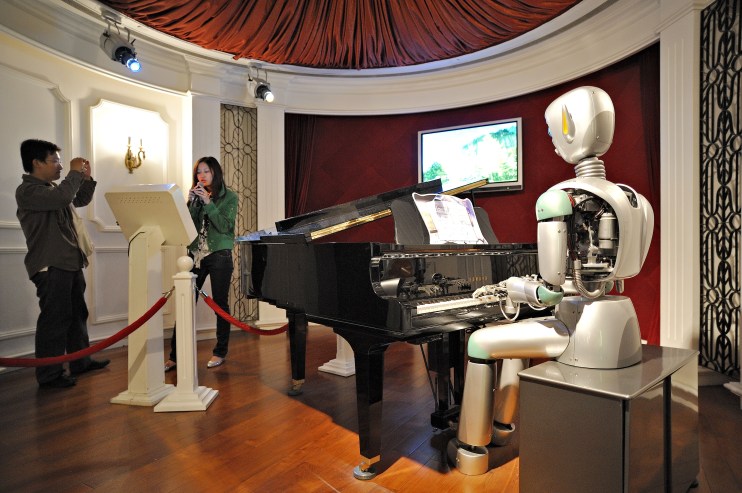Making the brave new world of automation work for society

As the chief executive of Capita — a business that employs 63,000 people and aims to be a leading provider of automation services in the UK — I am frequently asked what this technology will mean for society.
Often, what people really want to know is if their job is safe — and if theirs is, whose isn’t?
Following a pioneering project in conjunction with Lynda Gratton, professor of management practice at London Business School, and insight consultancy BritainThinks, we will tomorrow launch our new report “Technology, People and the Future of Work”, which will help to answer how the full potential of automation in the workplace can be unlocked.
The report follows in-depth interviews with a range of employees — from factory workers and call centre operators to HR professionals and technology developers — and incorporates a survey of a further 2,500 business leaders and employees.
The findings are stark. Seven out of 10 business leaders see the creation of “hybrid” workforces combining the soft skills of humans with ultra-fast speed of emerging technologies as the biggest challenge that companies now face, while two thirds fear their organisation will become “irrelevant” if they fail to make this transition.
Fundamentally, automation is about transforming processes. Tasks that once involved many people can now be performed far more quickly by increasingly sophisticated machines.
However, although breakthroughs in automation technologies will drive society forward with ever greater speed, they will also have an impact, at least in the short to medium term, on employment opportunities.
Despite these challenges, I believe that Britain is optimally positioned to benefit from large-scale automation. But I also recognise how crucial it is for the adoption of these new technologies to be carefully managed to ensure that the advantages are felt by all.
This can only be achieved by close consultation between the government and public and private sector employers, and through the collaborative formulation of policy.
As part of our research, we identified a clear direction for governments, policymakers, organisations and their employees to give automation the best chance possible to deliver on its potential in a way that benefits everyone, in a manner that minimises disruption.
But this is just a start. The automation revolution can only be effective if business leaders are honest with employees about the realities of automation, creating environments in which people feel included and supported as they adapt. They should address how the focus will change — 66 per cent of employees were aware that soft skills such as innovative thinking and creativity can’t be taught at all. These are the skills that employers will value most in an automated workplace.
While I recognise that the risk of disruption is great, and that we must strive to ensure that this risk is mitigated, I am optimistic about the potential for automation to hugely improve quality of life for everyone.
It’s why it is so important that businesses have honest conversations that meaningfully address the challenge of ensuring digital automation technologies are embraced in such a way that the benefits significantly outweigh the disadvantages. We must also prioritise giving people whose jobs become automated appropriate training and opportunities to progress in other ways.
As a society, we cannot shy away from the challenge of automation — the consequences of getting it wrong are potentially too great. After all, the ways in which a society goes about the act of work defines how people live, how they interact, and whether that society is happy or troubled.
Automation is a powerful force for good, but we must ensure that these technologies work for everyone. We will require real human intelligence, both emotional and practical, and honesty on all sides if we are to channel the energies of automation to drive society forwards.
Main image credit: Getty